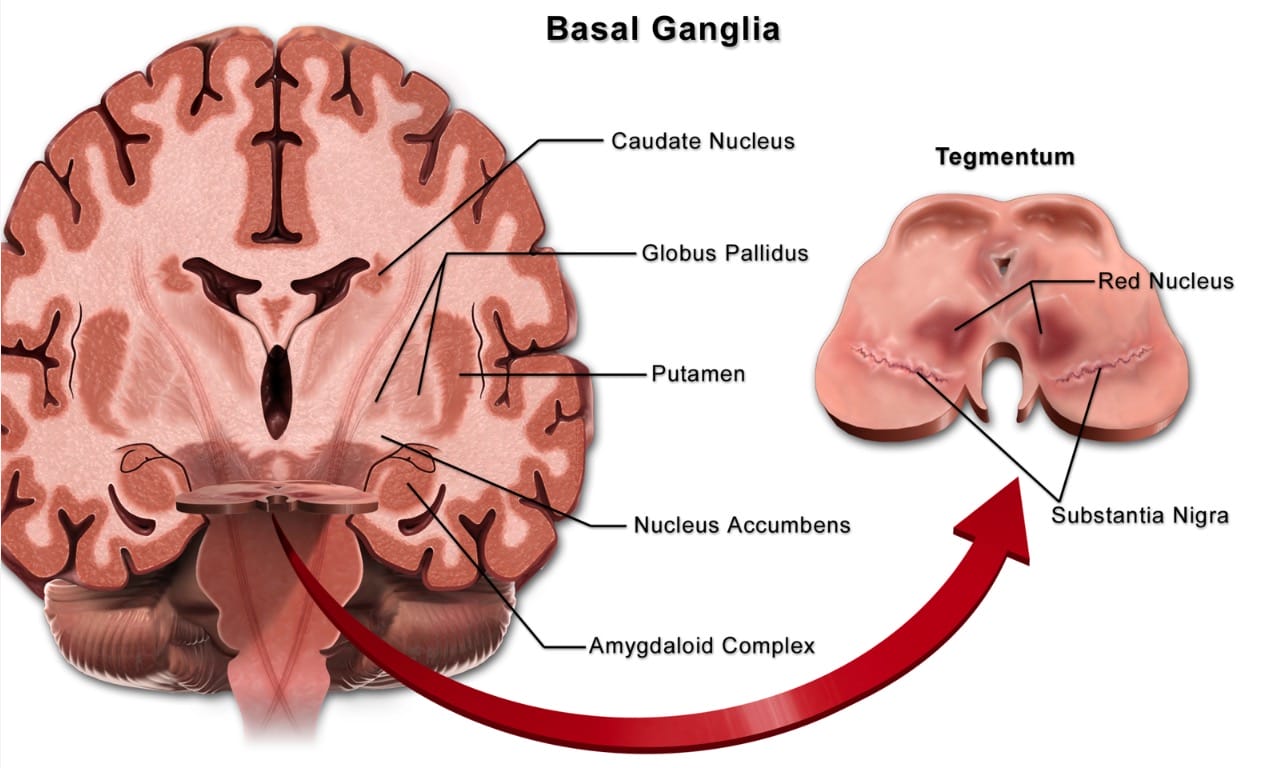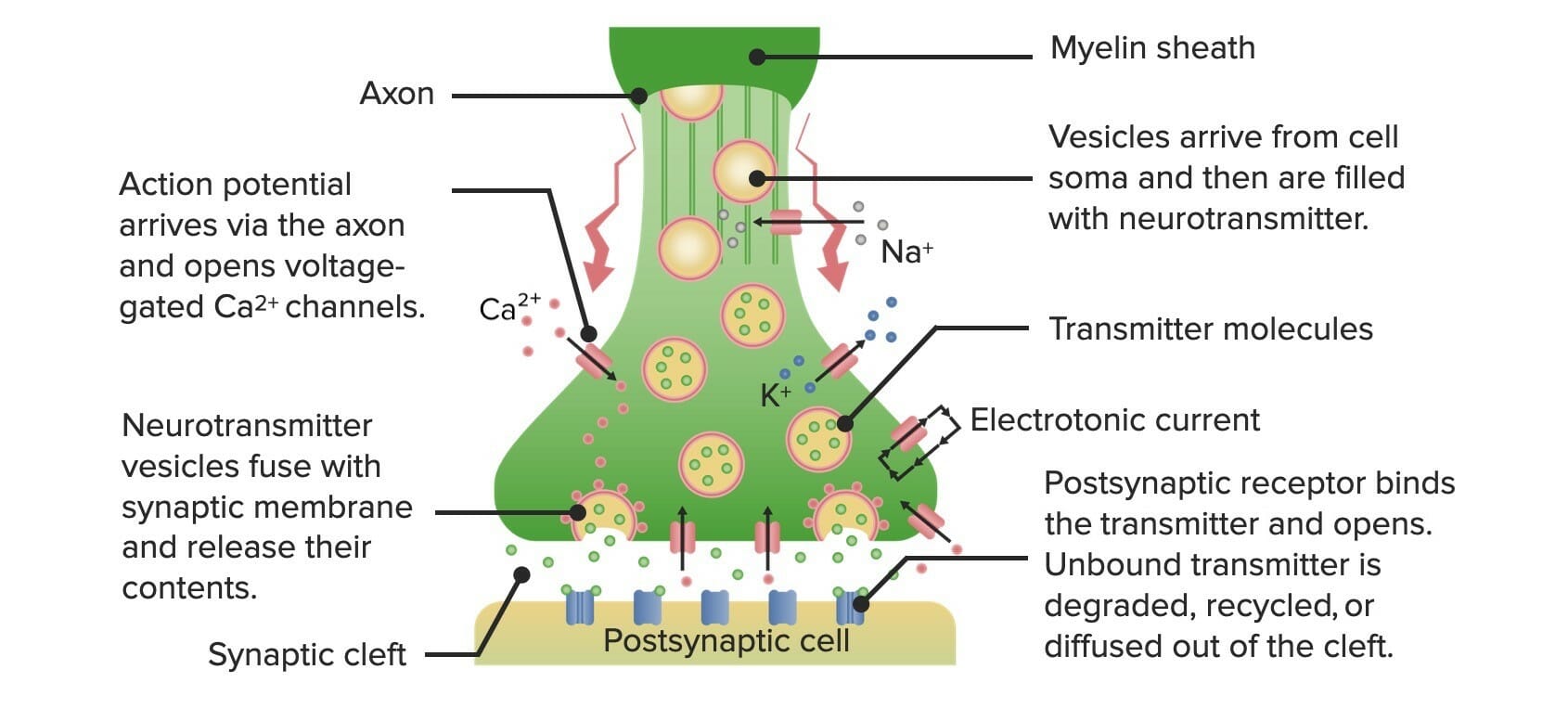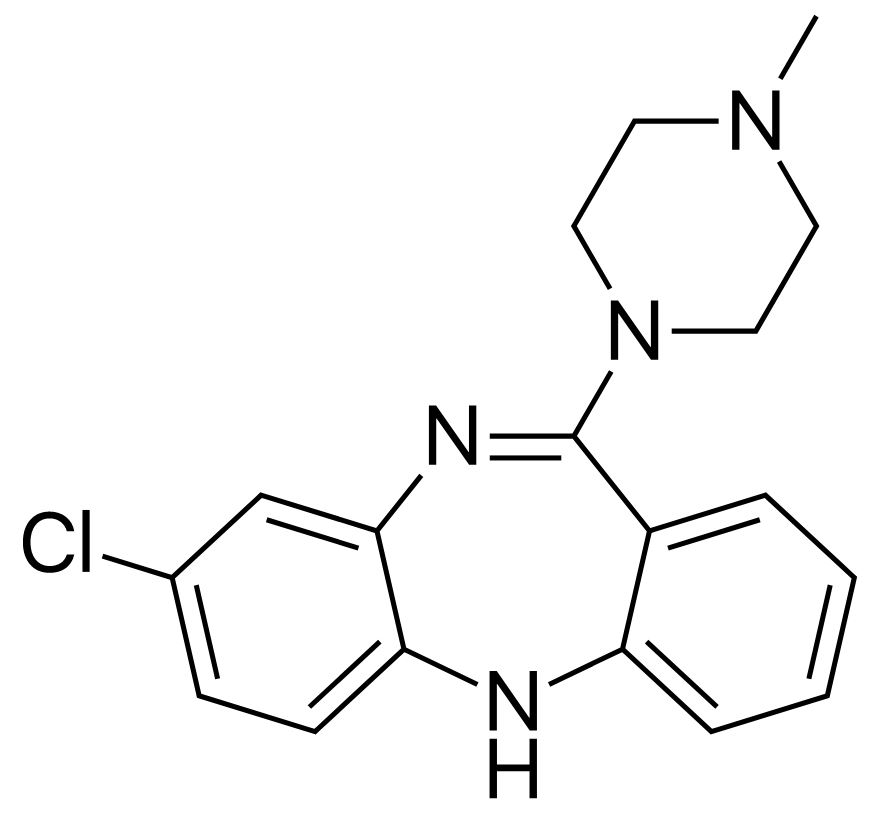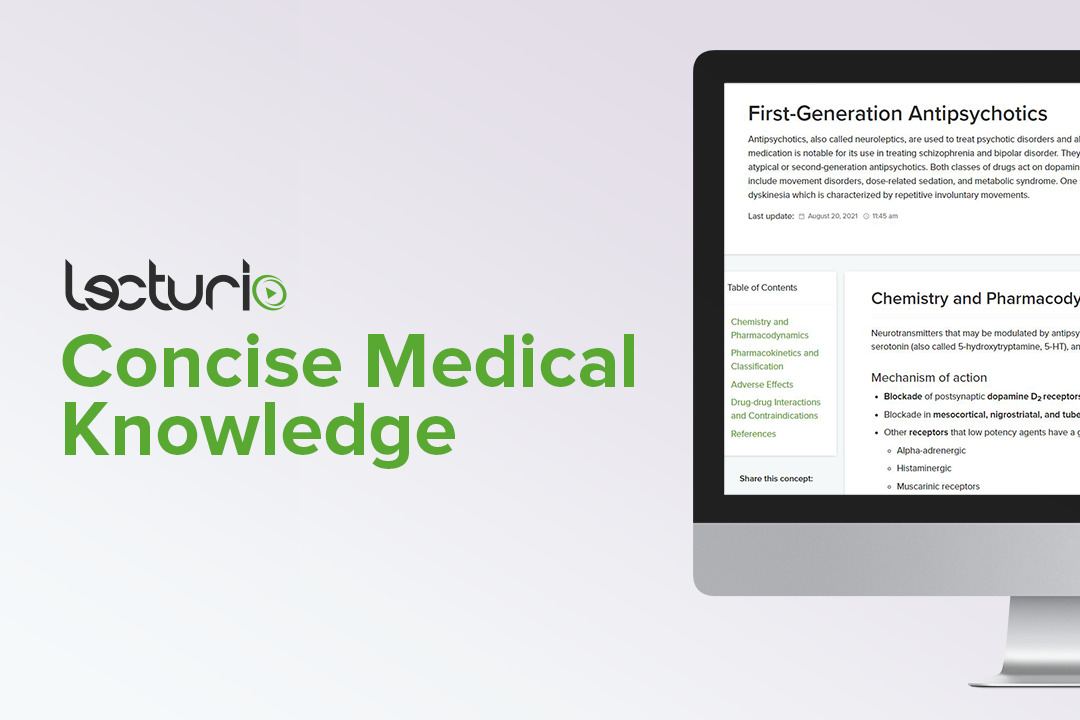Playlist
Show Playlist
Hide Playlist
Clinical Uses of Antipsychotics and Drug Induced Dyskinesia
-
Slides Antipsychotics CNS Pharmacology.pdf
-
Download Lecture Overview
00:01 What about disease like mania and Tourette's syndrome? We often use lithium in the treatment of mania and sometimes we will use these new agents in combination with lithium. These drugs are approved in bipolar disorder and in Tourette's syndrome. 00:19 I mention Tourette's syndrome in a later lecture and we will cover it more detail then. 00:23 The treatment of psychosis In patients with Alzheimer’s disease and Parkinson disease is particularly challenging. So if you go back to the dopamine model that I had shown you before, you know that increasing dopamine for Parkinson's disease may help the Parkinson's disease but it can make your psychosis worst. The opposite is true when you decrease dopamine levels. Decreasing dopamine levels can make your Parkinson's disease much worst but improve your psychosis symptoms. So it's a real challenge treating psychosis in patients who have Parkinson's disease for example. That's why this newer atypical agents are so helpful because they are actually approaching the serotonin portion of our understanding of how psychosis works. And that's why in patients who have Parkinson's disease and to a lesser extent Alzheimer's disease, we use these new agents to treat their psychosis. Let's move on to emesis and nausea. Remember that these agents are also active in the chemoreceptor trigger zone which houses the vomiting center of the brain. In fact most phenothiazine antipsychotic agents have very good anti-emetic properties. A classical example is Stemetil which is an agent that we use all the time in nausea particularly in patients who have been given chemotherapy agents and they are really nauseous from the treatment of their chemotherapy. There is a specific issue that I think we need to cover when we are talking about antipsychotic medications and that is a drug induced dyskinesia. This is kind of a unique side effects from these drugs. You can get an acute dystonia that's caused by antipsychotics. Remember that benztropine is the antidote to that reaction. Tardive dyskinesia may be due to disruption of normal dopamine signaling in the basal ganglia, most often caused by chronic D2 receptor antagonism, and fetal alcohol syndrome patients may develop tardive dyskinesia after only one dose of an antipsychotic. 02:37 So you have to be particularly aware of the side effects of these medication and the motor dyskinesias that you can get or induced by giving even as little as one pill. Listen, tardive dyskinesia is very hard to treat. 02:53 Withdrawal of the offending agent, when feasible, is obviously going to be your first line treatment. Symptomatic therapy primarily includes medications within vesicular monoamine transporter type 2 (or VMAT2) inhibitor class, including tetrabenazine, valbenazine, and deutetrabenazine. 03:11 Other medications that have been used in the past, but have limited evidence and efficacy, include clonazepam and amantadine Patients with persistent, disabling disease may be considered for deep brain stimulation.
About the Lecture
The lecture Clinical Uses of Antipsychotics and Drug Induced Dyskinesia by Pravin Shukle, MD is from the course CNS - Pharmacology. It contains the following chapters:
- Clinical Uses of Antispychotics
- Non-parkinsonian Movement Disorders - Drug Induced Dyskinesia
Included Quiz Questions
A patient with a history of fetal alcohol syndrome presents with psychosis and is being evaluated for antipsychotic medication therapy. Which of the following should be considered before proceeding?
- Patients with fetal alcohol syndrome may develop tardive dyskinesia after just one dose.
- Fetal alcohol syndrome typically results in an increased metabolism of antipsychotic medications.
- Fetal alcohol syndrome is linked to a decreased sensitivity to the sedative effects of antipsychotics.
- There is a high risk of developing serotonin syndrome in patients with fetal alcohol syndrome taking antipsychotics.
- Antipsychotics inhibit GABA-A receptors, which are upregulated in fetal alcohol syndrome.
Which patient is most likely to benefit from treatment with benztropine?
- A 35-year-old male diagnosed with acute dystonia
- A 7-year-old patient diagnosed with Tourette's syndrome
- A 92-year-old man diagnosed with Alzheimer's disease
- A 21-year-old woman with a history of hallucinations and severe anxiety diagnosed with schizophrenia
- A 79-year-old patient coming in with Lewy body dementia
Which drug class is used in the management of tardive dyskinesia?
- Vesicular monoamine transporter type 2 inhibitors
- Anticholinergics
- Antipsychotics
- Beta-adrenergic receptor blockers
- Antispasmodics
Customer reviews
5,0 of 5 stars
| 5 Stars |
|
5 |
| 4 Stars |
|
0 |
| 3 Stars |
|
0 |
| 2 Stars |
|
0 |
| 1 Star |
|
0 |







